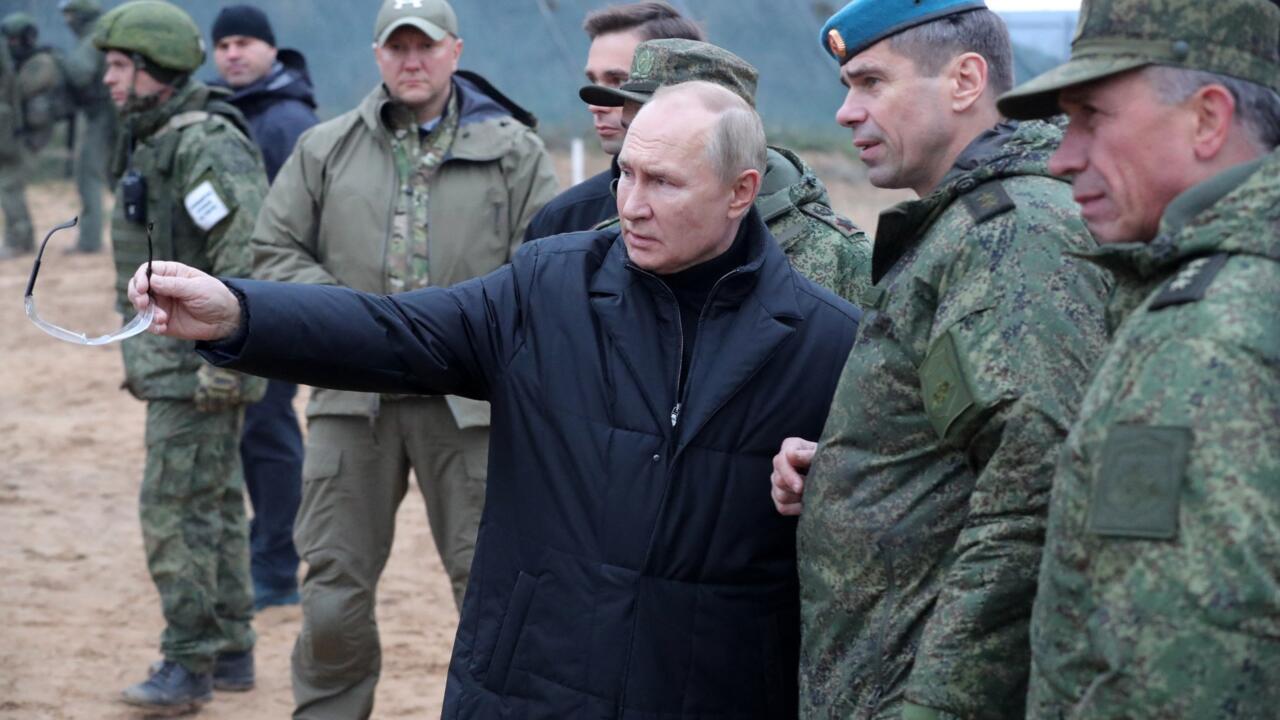Putin Signals Willingness to Negotiate on Ukraine Amid Ongoing Conflict
In a significant development on the diplomatic front, Russian President Vladimir Putin has expressed his readiness to engage in negotiations regarding the ongoing conflict in Ukraine. This announcement, made during a televised Q&A session, includes a willingness to hold talks with U.S. President-elect Donald Trump, who has positioned himself as a skilled negotiator.
Open Offer for Negotiations
During his address, Putin made it clear that he holds no preconditions for starting discussions with Ukrainian authorities. He emphasized a desire for compromises that could potentially pave the way to resolving the protracted war. “We have always said that we are ready for negotiations and compromises,” Putin declared, indicating a possible thaw in hostilities even as Russian forces reportedly progress in achieving their objectives in Ukraine.
Trump has frequently highlighted his capability in negotiation, drawing from his experiences chronicled in his 1987 bestseller, *”Trump: The Art of the Deal.”* However, he has yet to articulate specific strategies for ending the conflict in Ukraine—a situation that could be complicated by the inherent complexities of international diplomacy.
No Preconditions, Yet Defined Requirements
Putin’s openness to negotiations extends to all involved parties, including Ukrainian President Volodymyr Zelenskyy. However, he stated that any agreements reached would need to be formalized with what he refers to as Ukraine’s “legitimate authorities,” which currently entails the Ukrainian parliament. For Moscow to recognize Zelenskyy as a legitimate negotiating partner, it seems necessary for the Ukrainian president to secure reelection after his extended term under martial law, a condition that adds a layer of complexity to future negotiations.
The Russian leader dismissed suggestions for a temporary truce, arguing that a lasting peace agreement must be based on the initial framework drafted during early negotiations in Istanbul. This proposal has faced significant criticism from several Ukrainian lawmakers, who viewed it as a capitulation that would undermine Ukraine’s military and political leverage.
Ukraine’s NATO Aspirations: A Major Obstacle
Putin reiterated his long-standing opposition to Ukraine’s ambitions to join NATO, framing this stance as non-negotiable in any final peace agreement. Reports have suggested that he might consider discussing a potential ceasefire with Trump, although he has ruled out any significant territorial concessions. The ongoing war, initiated by Russia’s invasion of Ukraine in 2022, has resulted in profound humanitarian crises, claiming tens of thousands of lives and displacing millions, marking one of the most significant East-West tensions since the Cuban Missile Crisis.
From Russia’s perspective, its military actions are described as a “special military operation” aimed specifically at countering NATO’s expansion. Currently, Russian forces control roughly one-fifth of Ukraine, having recently intensified efforts to seize strategic locations, including Pokrovsk, a vital transportation hub.
Putin’s Reflection on Strategy and Domestic Challenges
When questioned about whether he would have approached the conflict differently, Putin acknowledged, “I should have sent troops into Ukraine sooner than 2022.” He expressed concerns about Russia’s preparedness for the ongoing conflict, hinting at a degree of introspection regarding military strategy. The war has also instigated economic shifts within Russia, as Putin highlighted challenges such as inflation and signs of an overheated economy. Nevertheless, he claimed that Russia’s economic growth remains superior to other nations, including the United Kingdom.
On the battlefield, Putin assured that Ukrainian forces in Russia’s Kursk region would eventually be expelled, though he did not provide a definitive timeline. The Russian leader described the military situation as “complex,” yet affirmed that Russian troops are progressing towards their primary objectives.
Military Advancements and Global Posturing
In a display of military prowess, Putin took time to assert the capabilities of Russia’s hypersonic “Oreshnik” missile, which has already been deployed against Ukrainian military targets. He provocatively suggested a new test launch aimed at gauging Western air defense systems’ effectiveness against such technology. Ukrainian President Zelenskyy, participating in a European Council meeting, dismissed Putin’s claims, questioning his sanity and resolve.
Russia’s Influence in the Middle East
Addressing concerns about Russia’s diminishing influence in the Middle East, Putin countered these narratives by discussing ongoing consultations with Syria regarding the retention of Russian military bases. “Rumors about the death of Russian influence in the Middle East are exaggerated,” he stated, asserting a robust presence and strategic partnerships in the region.
Conclusion: Reflections and Future Prospects
As the question-and-answer session progressed, Putin reflected on his leadership trajectory since taking office in 1999, stating that he has fulfilled former President Boris Yeltsin’s request to “look after Russia.” He expressed pride in steering the nation away from what he characterized as the “edge of the abyss,” reaffirming his commitment to ensuring that Russia operates as an independent and sovereign power, capable of pursuing its interests.
As fighting continues in Ukraine and the human toll escalates, the prospects for peace remain uncertain. The implications of Putin’s remarks, coupled with Trump’s potential involvement, signal a complex interplay of international relations that will shape the future of the region and beyond.
